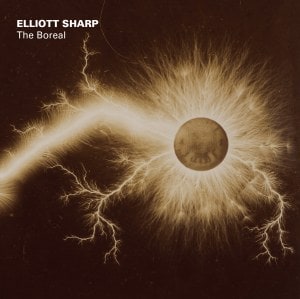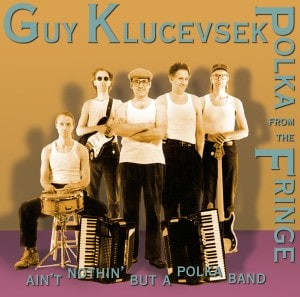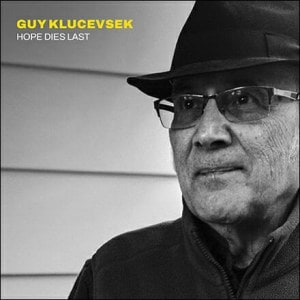the recording is of very high quality.”
This CD presents the premiere recordings of four works for solo piano, string quartet, chamber ensemble, and full orchestra from Elliott Sharp, who has been a central figure in the avant-garde and experimental music scene in New York City since the late 1970s.
through the neural strata of the listener.”
The Boreal (2009) was composed for and premiered by the widely acclaimed JACK string quartet. JACK’s John Pickford Richards writes, “Elliott Sharp is one of the most naturally experimental composers today, and his works for strings continue to push the boundaries of what these old instruments can do.” For this innovative work, Sharp created exotic alternate bows, substituting ballchain and metal springs for the traditional horsehairs.
Reviewing a performance in Seen and Heard International, George Grella remarked that these invented bows produce “sounds that I have truly never heard, via any means or in any situation. Much of it sounds like a scream traversing a wind tunnel, the aural sense of great energy and color shimmering in space.” Grella concluded this “always interesting and powerful” composition is “a great piece, a notable signpost in the road of experimental music that parallels the standard classical tradition.”
Commissioned and premiered by pianist Jenny Lin, Oligosono (2005) uses extended techniques that include manipulations made directly on the piano strings, permutative reordering of short loops, and fingerings that enhance the generation of harmonic overtones. Lin notes this “virtuosic tour-de-force” takes “listeners through a thrilling and provocative sonic world.”
Conductor David Bloom writes that Proof of Erdős (2006) “is a gripping juggernaut that builds white-hot walls of sound, overtaking listeners before leading them to even denser ones, like the next landing of an M.C. Escher staircase.” An homage to the late great mathematician Pal Erdős, the work reflects that mathematics have long played an important role in Sharp’s formal constructions, especially fractal geometry, chaos theory, Fibonacci numbers, and bio-genetic concepts. Uitti comments, “the contrasts are violent and extreme, the use of register pushing the instruments to their limits, overloaded intricate textures extended in time end up feeling like stasis – the eye of the hurricane – luminous and yet complex.” Regarding the performance by the distinguished musicians in the composer’s ensemble, Bloom notes “the incomparable string players of Orchestra Carbon dig deep into their instruments to conjure unexpected and alluring sounds.”
The CD ends with On Corlear’s Hook (2007), which was inspired by the diverse activities near Sharp’s apartment on Manhattan’s Lower East Side, known as Corlear’s Hook. The area is rich in sights and sounds: bridges to Brooklyn, loading docks, the Navy yard, ferry landings, river traffic, birds, helicopters, planes headed for LaGuardia and JFK. Uitti writes the “idiosyncratic, powerful, and above all, highly intelligent” work employs “Sharp’s signature use of independent cells progressing at different speeds – lining up briefly and splitting off again,” to create “dramatic instrumental contrasts” that “keep listeners on the edge of their seats.” The work is performed by the Janáček Philharmonic, conducted by Peter Rundel.
Uitti concludes, “Elliott’s forms are uncompromising, often juxtaposing highly contrasting musical textures, ranges, and structures, while riveting the listener in a myriad of ever-changing motivic cells. I found myself immersed in this complexity to such a minute degree as to lose a sense of conventional time.”
About Elliott Sharp
A multi-instrumentalist, composer, and performer, Elliott Sharp leads the projects Carbon and Orchestra Carbon, Tectonics, and Terraplane. He has released over eighty-five recordings ranging from orchestral music to blues, jazz, noise, no wave rock, and techno music, and he has pioneered ways of applying fractal geometry, chaos theory, and genetic metaphors to musical composition and interaction. Sharp is a 2014 Guggenheim Fellow, a 2014 Fellow at Parson’s Center for Transformative Media, and received the 2015 Berlin Prize in Musical Composition from the American Academy in Berlin. He has composed scores for feature films and documentaries; created sound-design for interstitials on The Sundance Channel, MTV and Bravo networks. Sharp has presented numerous sound installations in art galleries and museums, including his electroacoustic work Cryptid Fragments in the 2001 Bitstreams show at the Whitney Museum. In 2010, he directed, wrote, and composed About Us, a science-fiction opera for all-teenage performers at the Bayerische Staatsoper in Munich. Sharp’s composition Storm Of the Eye appears on violin virtuoso Hilary Hahn’s 2014 Grammy-winning album “In 27 Pieces.” He is the subject of a documentary “Doing The Don’t” by filmmaker Bert Shapiro, and he has been featured on NPR’s All Things Considered. Sharp’s collaborators have included pop singer Debbie Harry; Ensemble Modern; Qawwali singer Nusrat Fateh Ali Khan; Kronos String Quartet; Ensemble Resonanz; cello innovator Frances Marie Uitti; pipa virtuoso Min-Xiao Feng; and multimedia artist Christian Marclay.
about the performers
JACK Quartet
The JACK Quartet electrifies audiences worldwide with “explosive virtuosity” (Boston Globe) and “viscerally exciting performances” (New York Times). David Patrick Stearns (Philadelphia Inquirer) proclaimed their performance as being “among the most stimulating new-music concerts of my experience.” The Washington Post commented, “The string quartet may be a 250-year-old contraption, but young, brilliant groups like the JACK Quartet are keeping it thrillingly vital.” JACK focuses on the commissioning and performance of new works, leading them to work closely with such composers as John Luther Adams, Derek Bermel, Brian Ferneyhough, Georg Friedrich Haas, Vijay Iyer, György Kurtág, Helmut Lachenmann, Steve Mackey, Matthias Pintscher, Steve Reich, and John Zorn. The recipient of Lincoln Center’s Martin E. Segal Award and New Music USA’s Trailblazer Award, JACK has performed to critical acclaim at Carnegie Hall (USA), Lincoln Center (USA), Wigmore Hall (United Kingdom), Suntory Hall (Japan), Salle Pleyel (France), La Biennale di Venezia (Italy), the Lucerne Festival (Switzerland), Reykjavik Arts Festival (Iceland), and the Kölner Philharmonie (Germany).
Jenny Lin
Pianist Jenny Lin has been acclaimed for her “remarkable technical command” and “a gift for melodic flow” by The New York Times, praised for her “spectacular technique” by The Washington Post, and hailed as “an exceptionally sensitive pianist” by Gramophone Magazine. Lin has performed at Carnegie Hall, Avery Fisher Hall, Kennedy Center, Miller Theatre, MoMA, Whitney Museum, San Francisco Performances, (Le) Poisson Rouge, National Gallery of Art, Corcoran Gallery, and throughout Europe and the Far East.
Janáček Philharmonic Orchestra
One of the leading Czech symphonic orchestras, the Janáček Philharmonic Orchestra regularly tours throughout Europe, USA, Japan, South Korea, and Taiwan. They often perform in major Czech festivals, including Prague Spring, Janáček May, and Prague Music Festival. They have released over two dozen CDs, including the Arabesque, Brilliant Classics, Centaur Records, Crystal, Mode, and Naxos labels. Since the ’90s, the orchestra has concentrated on performing contemporary compositions by such composers as Earle Brown, John Cage, Morton Feldman, Alvin Lucier, Pauline Oliveros, Somei Satoh, Karlheinz Stockhausen, Toru Takemitsu, Edgard Varese, and Christian Wolff.
Orchestra Carbon
Elliott Sharp’s Orchestra Carbon, with some of New York’s top musicians hand-picked by the composer, has recorded six albums. For this CD, the string ensemble includes members of the JACK and Sirius string quartets.









